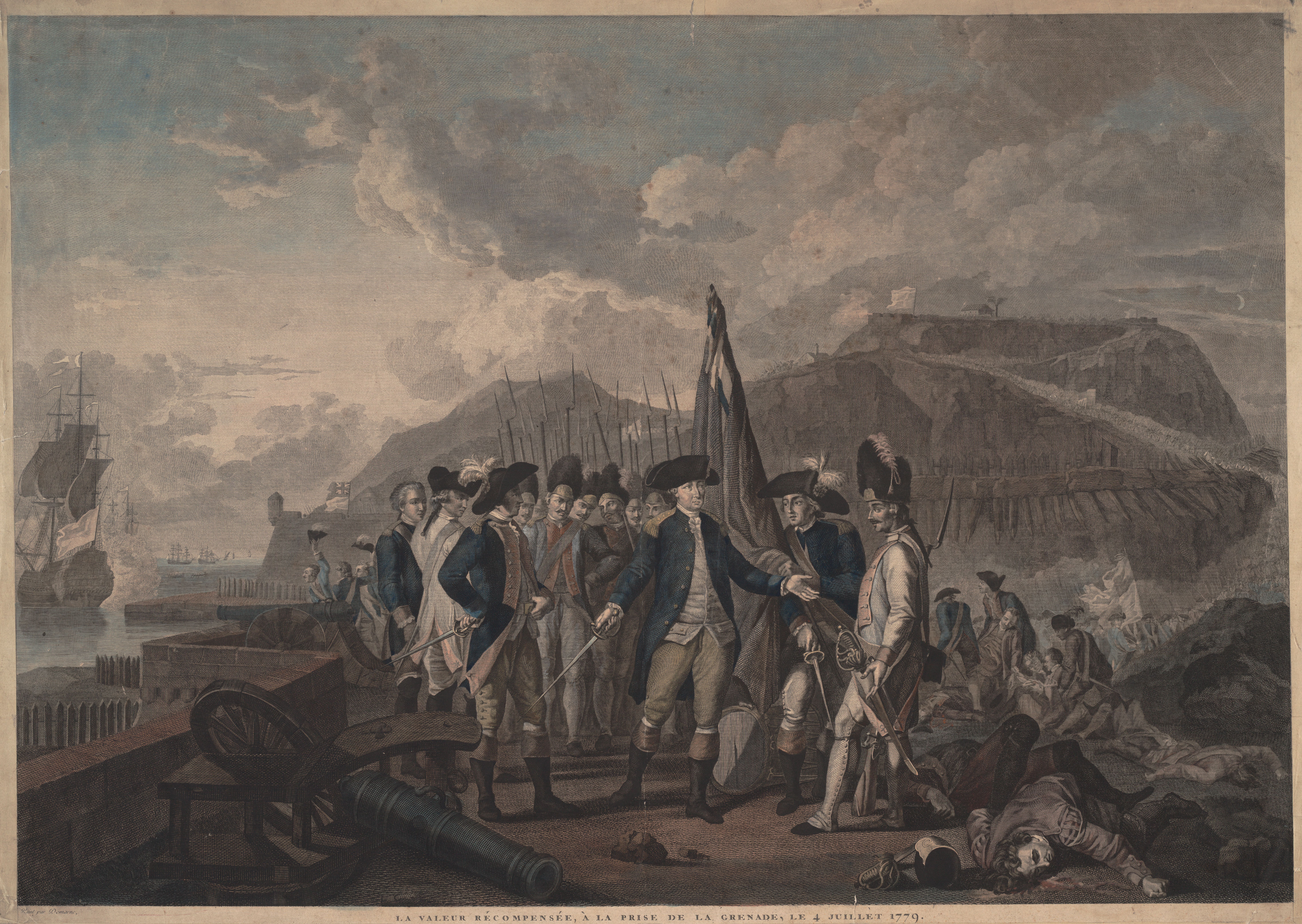Anglo-French War, 1778-1783
Enlarge text Shrink text- Mahan, A.T. The major operations of the navies during the War of American Independence, 1969, c1913:p. 58 (Feb. 1778; France recognized the independence of the United States; war begins between France and Great Britain)
The Anglo-French War, also known as the War of 1778 or the Bourbon War in Britain, was a military conflict fought between France and Great Britain, sometimes with their respective allies, between 1778 and 1783. As a consequence, Great Britain was forced to divert resources used to fight the American War of Independence (the rebellion by the Thirteen Colonies in North America) to theatres in Europe, India, and the West Indies, and to rely on what turned out to be the chimera of Loyalist support in its North American operations. From 1778 to 1783, with or without their allies, France and Britain fought over dominance in the English Channel, the Mediterranean, the Indian Ocean and the Caribbean. Within days of the news of Burgoyne's surrender reaching France, King Louis XVI decided to enter into negotiations with the Americans that resulted in a formal Franco-American alliance and the French entry into the war, moving the conflict onto a global stage. Spain did not enter into the war until 1779, as an ally of France pursuant to the secret Treaty of Aranjuez. Vergennes' diplomatic moves following the French war with Britain also had material impact on the later entry of the Dutch Republic into the war, and declarations of neutrality on the part of other important geopolitical players like Russia. Opposition to the costly war was increasing, and in June 1780 contributed to disturbances in London known as the "Gordon Riots". At the same time France assisted the Spanish in operations against British-held Menorca and Gibraltar as well as islands in the Caribbean. Menorca was taken in 1781 as were many islands in the Caribbean. The Franco-Spanish alliance, however, in 1782 encountered severe setbacks with the defeat and capture of De Grasse at the Battle of the Saintes in April as well as the failure of the Great Siege of Gibraltar in September. France, also facing financial difficulties, wanted peace which meant coercing her Spanish ally into negotiations. In addition, a series of naval battles between Admirals Edward Hughes and Pierre André de Suffren were fought in a French attempt to displace Britain from her Indian territories. The fighting here was largely inconclusive but the French were unable to displace the British and fighting only ended upon learning of the provisional Anglo-French-Spanish peace treaties of 1783. The Bourbon War helped secure American independence and bring an end to the First British Empire but turned out to be detrimental to the French crown. The cost of participation in the American war inexorably led to France's own bankruptcy six years later, setting the stage for the French Revolution.
Read more on Wikipedia >
 Topic
Topic












